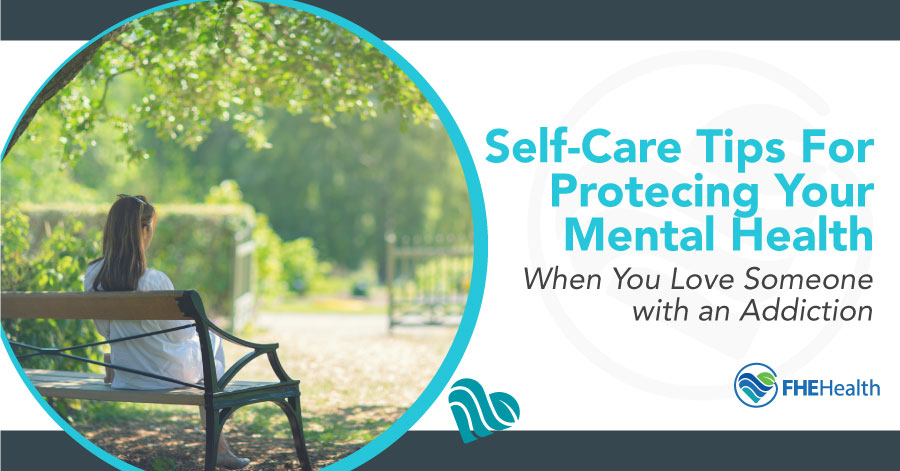
Every person trying to beat addiction or dealing with a substance abuse problem needs a support system. But if the support system is primarily a single individual, it can take a huge toll on that person’s mental health. If you have a loved one who is going through the journey of rehab and entering into a sober lifestyle, it’s important to take steps to protect your mental health. One of the best ways to do this is by practicing appropriate self-care. Below we cover why self-care is important, what can happen when you don’t make time for it and how to start focusing on this area in your life.
Caring for Someone With Mental Health Issues Is Hard
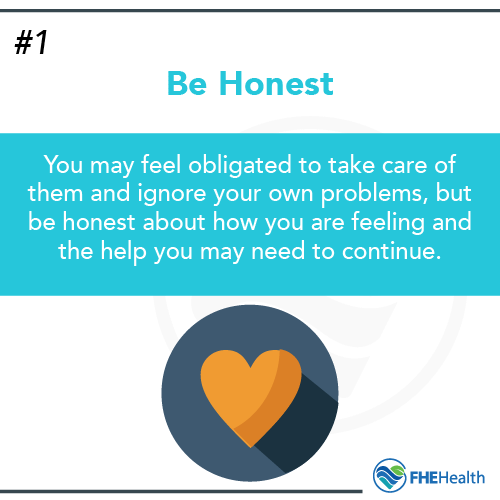
When someone you love is struggling with addiction or another mental health issue, it affects everyone around them. You want to be supportive, but it’s not always easy to know what to do, when to do it and how much to help without enabling or trying to elbow in and do the recovery journey for the person (instead of supporting them through it).
The truth is that recovering from addiction is hard. And not just for the addict. This is why it’s so important to ensure you’re checking in with yourself on a regular basis and that you’re taking the steps you need to practice self-care and protect your own mental health.
Feeling drained or like you’re not able to do enough or be enough — as well as symptoms of depression or anxiety — are all red flags that you’re not taking care of yourself and adjustments need to be made.
Not Prioritizing Your Own Self-Care Can Make the Situation Worse
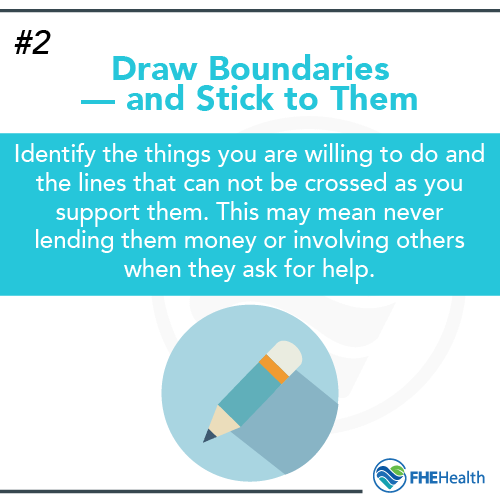 When you put your own needs aside and your mental health starts to drop, it can end up as a spiral that eventually makes the entire situation worse. When you don’t take care of yourself — mentally, emotionally and physically — it’s normal to have less energy, experience more stress and have a lower threshold for dealing with that stress. It’s also common to be more at risk for anxiety and depression. Those who aren’t practicing self-care may have disrupted sleep and eating patterns, which can lower immune system responses and increase vulnerability to colds or other illness.
When you put your own needs aside and your mental health starts to drop, it can end up as a spiral that eventually makes the entire situation worse. When you don’t take care of yourself — mentally, emotionally and physically — it’s normal to have less energy, experience more stress and have a lower threshold for dealing with that stress. It’s also common to be more at risk for anxiety and depression. Those who aren’t practicing self-care may have disrupted sleep and eating patterns, which can lower immune system responses and increase vulnerability to colds or other illness.
All of this matters because if you get to a point of depression, anxiety or actual illness, it makes it much harder to be of any real help in supporting your loved one. And since addiction can run in families, you may also run the risk of encouraging an addiction problem in your own life if you tend to try to self-medicate through drugs or alcohol.
4 Tips for Practicing Self-Care to Protect Your Mental Health
It takes a concerted effort and some investment in time to make self-care a priority, but it’s important to do that. Practicing self-care may make you think of bubble baths and scented candles, and while those are fine ways to relax, that’s not all there is to this critical process. Here are four ways to increase your success with self-care.
1. Be Honest
You can’t practice self-care, or even know when you need to make your own mental health the priority, if you can’t be honest about what’s going on and how you’re dealing with it. Being honest is an important aspect of being realistic about the situation and figuring out what you can — and can’t — do to help your loved one without burning yourself out in the process.
2. Draw Boundaries — and Stick to Them
One important aspect of protecting your own mental health is drawing appropriate boundaries when it comes to effectively supporting your loved one. While supporting them in their journey can be a defining factor in how their own recovery plays out, it’s easy for this support to cross over into enabling, and that’s not healthy for anyone. If you have trouble sticking to boundaries, try writing them out and giving a copy to a trusted friend or counselor who can help you know when you start to waiver.
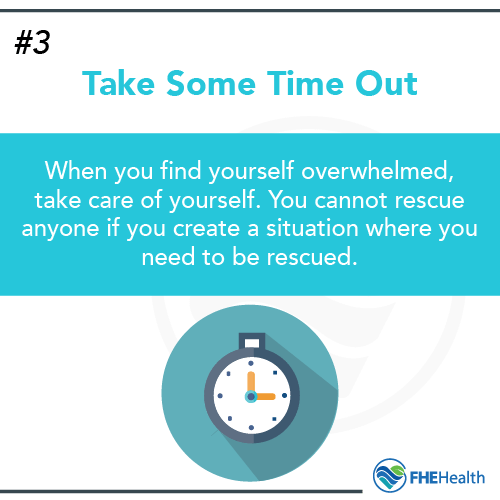 3. Take Some Time Out
3. Take Some Time Out
It’s normal for the addicted person and their addiction to be the focus of the family and surrounding support group, but it’s important that it doesn’t become the focus forever. Life must go on, and the person struggling with addiction needs to be treated as a normal part of the family. That means people can’t continue walking on eggshells trying to create the perfect environment so the person doesn’t struggle.
When you start to feel like your life is being consumed by a loved one’s addiction or mental health struggles, take time out to focus on yourself and just get some separation from the drama. That might mean treating yourself to a solo movie or a day spent snuggled on the couch watching Netflix or could mean taking a weekend or even a week or two to put a bit more space between you and the person while you rediscover and redefine your balance.
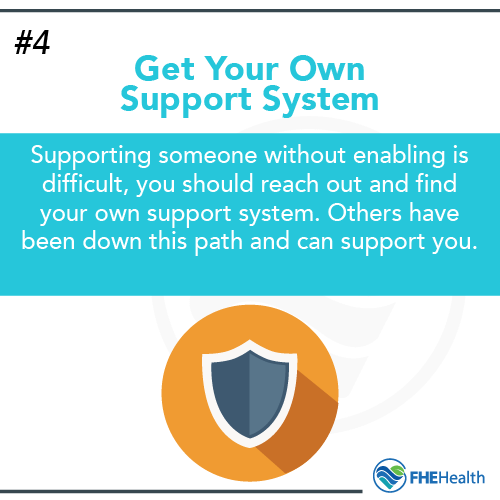 4. Get Your Own Support System
4. Get Your Own Support System
Learning how not to enable is a process, and you’ll need help along the way. A strong support system should be made up of friends who you can be honest with about what’s going on and who will hold you accountable for sticking to your boundaries and not engaging in enabling behavior. Having your own counselor can also be a huge benefit, as they can point out how your own issues might contribute to the dynamic that enables those struggling with addiction and help you figure out new patterns of thinking and behavior. Finally, an actual support group can help you connect with others going through the same things who can empathize and provide support.
If you’re struggling to stay stable while helping someone you love get through addiction, it’s important to get help for yourself as well. Contact FHE Health to find out more about our offerings for family members of addicts and the support we may be able to provide.






